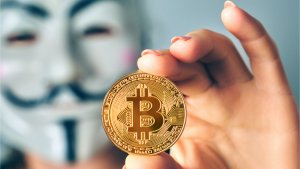How Will Bitcoin Become More Widespread?
The popularity of cryptocurrency continues to gain traction. Bitcoin has also spearheaded this phenomenon. In October, the U.S. SEC approved the first Bitcoin exchange-traded fund allowing investors who need to trade stock-like products access to a new asset class.

The launch of the ProShares Bitcoin Strategy ETF has already attracted more than $1 billion in assets. Despite the further introduction of Bitcoin as a payment mechanism through PayPal and Square, Bitcoin’s ownership remains concentrated and only owned by a few thousand people. For Bitcoin trading to enjoy widespread appeal, its ownership needs to shift toward the masses.
Bitcoin in a Few Hands
As reported by Bloomberg, the National Burea of Economic Research (NBER) said that most of the Bitcoin that is in circulation is owned by 10,000 individual investors. The approximate that 33% of the Bitcoin owned is in just a few hands. One of the difficulties in reporting who owns Bitcoin is that many of the largest owners are represented by exchanges that hold Bitcoin on behalf of their investors. The report by the NBER shows that the top 1,000 addresses owned by individuals own 3-million bitcoin. This scenario shows that a few amounts of people hold the majority of the concentration. The report also showed that individuals own about 40% of the Bitcoin in circulation, and exchanges and trustees own approximately 60%. Additionally, another issue was that 20,000 addresses were held by one person, likely the inventor (Satoshi Nakamoto), making determining the ownership of Bitcoin even more difficult.
https://time.com/6110392/bitcoin-ownership/
Miners Own a Lot of Bitcoin
It has also become clear that the runup in the price of Bitcoin has attracted a lot of businesses to the mining practice. Bitcoin mining is the process of confirming and verifying a transaction. The method of verification is the key to decentralized finance. Miners use a complex combination of formulas that require enormous volumes of electricity to solve a problem and create a new block on the blockchain. Blockchain is a string of code that has a recent transaction and never overwrites old blocks. Miners are an essential part of the blockchain process. Without independent individuals verifying transactions, there would be no decentralized finance. As part of this environment, miners need to be compensated for their efforts. Their compensation comes in the form of Bitcoin. The first miner to confirm the transaction via solving the following address in the formula receives Bitcoin.
Mining is expensive, and those who can afford the power cost can be successful miners. According to the NBER, the top 10% of miners control 90% of the Bitcoin mining capacity. The report goes on to say that approximately 50 miners control 50% of the mining capacity.
The concentration of miners that control capacity makes the Bitcoin trading environment vulnerable. Collusion could be an issue if a group of miners decided that they had a monopoly on Bitcoin and wanted to control the volume of Bitcoin released and the value of Bitcoin. The report by NBER finds that the concentration of miners holding the majority of the blockchain volume declines when the price of Bitcoin drops. Since Bitcoin has been in an upward trend, the concentration has continued to narrow.
How Can the Process Change?
Decentralized finance is popular in countries that use other countries’ currencies as their reserve currency. For example, in 2021, El Salvador became the first country to make Bitcoin a legal currency. President Nayib Bukele advocated the policy. The move came because about 70% of the El Salvadorian citizens do not have standard financial services. The hope by the President is that decentralized finance will increase access to financial services. According to NPR, El Salvador holds about 550 Bitcoin. The reserve currency for El Salvador is the U.S. dollar.
Decentralized finance is beginning to perpetuate through payment processors. PayPal and Square provide Bitcoin trading. PayPal also allows customers to transact with vendors. They have provided cryptocurrency access to more than 27-million of their vendors, helping to propagate the acceptance of Bitcoin.
The Bottom Line
While Bitcoin acceptance has been steady, there continues to be a small number of individuals that own most of Bitcoin. Bitcoin has increased its acceptance through the investment community with an ETF launched in the United States in October of 2021. Bitcoin has also been able to generate further approval through payment processors such as PayPal and Square. Investment banks have also added trading desks to engage in Bitcoin trading. Even a country has moved to accept Bitcoin as legal tender. In 2021, El Salvador became the first country to accept Bitcoin.
Despite the push toward decentralized finances, the number of available Bitcoin is concentrated in a few hands. This concentration makes Bitcoin subject to systemic risks. A small group of traders or miners could manipulate Bitcoin, driving up the price and making it less acceptable for individuals and countries worldwide.










